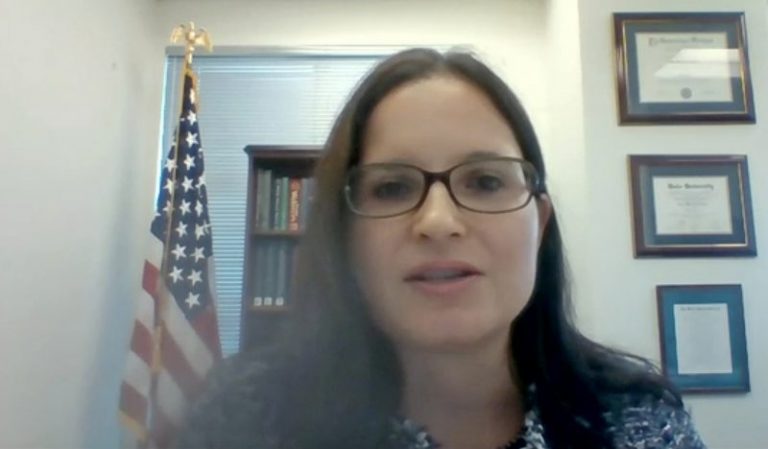Judge Aileen M. Cannon scheduled the first pretrial conference in the high-profile criminal case against former president Donald Trump for July 14, kicking off the relatively lengthy process of preparing for a trial that relies on classified documents as evidence.
The hearing will focus on the procedures required to use these highly sensitive government documents in a jury trial. Cannon said Trump’s presence is not required.
The judge also granted the government’s request to appoint a classified information security officer who would “assist the Court, Court personnel, and the defense in the handling of any motions and orders” related to classified materials.
In a separate order on Monday, Cannon rejected a Justice Department request to place under seal a list of 84 witnesses in the case, all of whom Trump has been barred from speaking to about the facts of the charges against him.
Trump was indicted earlier this month on 37 counts of illegally retaining national defense materials and interfering with government efforts to get those materials back. The magistrate judge who arraigned Trump told prosecutors to submit to the former president’s lawyers a list of witnesses that he should not speak to about the investigation.
In a court filing, federal prosecutors said they submitted the list to Trump. They also asked Cannon to place the list under seal and require Trump and his co-defendant, Walt Nauta, to sign a document saying they had seen the list.
Cannon said in her order on Monday that the government failed to explain why the witness list should be filed under seal. The Justice Department and Trump’s legal team declined to comment.
Legal experts said Cannon’s ruling on the witness list was routine and does not illuminate much about how she will handle the case.
“There are going to be a lot of ministerial orders that are administrative or scheduling or procedural. This is a trial, and not everyone agrees how these things should be done,” said David Aaron, a former Justice Department lawyer who prosecuted national security cases. “So people shouldn’t get too excited about each one of these.”
Joseph A. DeMaria, a former federal prosecutor in Miami who now works as a private attorney, said Trump is still bound by the conditions set by the magistrate judge, including not discussing his indictment with witnesses.
But he said the requests to keep the list under seal and to ask Trump and Nauta to acknowledge that they had seen it went beyond the magistrate judge’s order — and did not meet the typical threshold for federal courts in Florida for keeping court documents from public view.
“All they said is they want this to be filed under seal,” DeMaria said. “That’s not how we do it in Florida.”
Prosecutors could refile their motion with an explanation of why they believe the list should be filed under seal.
The criminal case against Trump will be tried under the rules of the Classified Information Procedures Act, or CIPA, which spells out pretrial steps that must be taken to decide what classified information will be used in court and how.
Last week, Cannon said the trial would start in the second half of August. But that timetable is not expected to stick, since Trump’s attorneys have not yet received the necessary security clearance to view the classified documents.
On Friday, the Justice Department requested that the trial begin in December — a still relatively aggressive timetable that Trump’s attorneys are expected to contest, according to a court document filed by the government.
Devlin Barrett contributed to this report.

